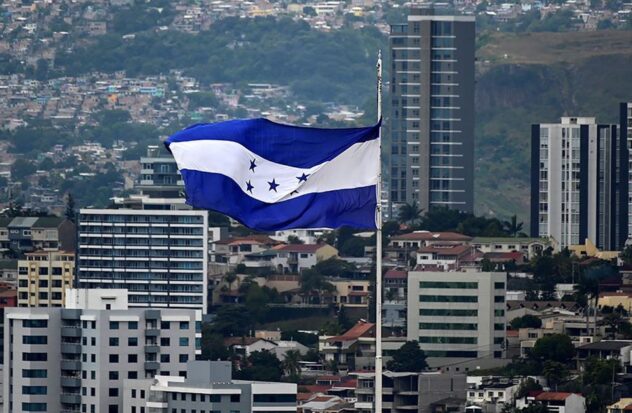June 28, 2009 is a date that will forever be marked in Latin American political history and even more so for the Honduran people. Regionally, it represented a watershed in the constitutional direction of our countries, but in the Central American nation, it symbolized the point of no return that gave way to polarization, hatred, resentment and violence. That summer Sunday, President Manuel Zelaya was removed from power while trying to carry out an irregular plebiscite in search of modifying the Magna Carta to, among other things, enable re-election.
This was followed by a series of painful events that put governance, coexistence and inevitably the already fragile institutionality in check. After 15 years it is then worth asking: How did it come to this? What was the subsequent action? What can we learn?
At the time Latin America was at that time, the Honduran constitutional crisis had an impact that transcended the country’s economic weight. Although practically no government endorsed the replacement or the way in which it was carried out, there was a clear difference in approach because on the one hand there were those who assumed unrestricted defense of the fallen president, on the other there were those who regretted what happened but at the same time questioned the behavior before the pronouncement. Zelaya, at that time a member of the center-right Liberal Party, was neither a union member nor a former guerrilla, rather he came from a wealthy family in the interior and his political life had been developed within the current system. But like others before and after, he could not resist Hugo Chávez’s foreign policy based on providing cheap energy on concessional terms to potential allies, freeing up large funds for social spending for clientelistic purposes.
Thus, the leader elected under traditional flags turned towards rhetoric and actions in line with the hard left, even adhering his country to the so-called Bolivarian Alliance for the Peoples of America (ALBA). This was a very palpable difference with other members because in the cases of Bolivia and Ecuador, both Evo Morales and Rafael Correa meant rupture, not mutation. In the case of Nicaragua, the return of Daniel Ortega, although it was based on 16 years acting within a democratic consensus, never disguised his contempt for it, destabilizing government after government and using blackmail as his preferred weapon. Only Honduras exemplified a change of direction, after the Chavista frustration in Ecuador with Lucio Gutiérrez and then in Peru with Ollanta Humala. This panorama influenced how Caracas saw Tegucigalpa in addition to its special geographical symbolism.
So, losing a token like this was not something that could depend on constitutional limits on terms in power. For this reason, one after one, the ALBA members followed the same script of defining the current constitution as the cause of all evils and presenting a constituent process as the sole guarantor of social justice. Without exception, they all came to include presidential re-election, first cynically with a single consecutive term, but then indefinitely. In Honduras, that was the fear of various actors who, in “Mel,” as the leader is known, saw with serious reasons a possible dictatorship under the guidelines of the so-called “21st Century Socialism.”
He did not care about the prohibitions or the fact that the country was called for general elections that same year. He wanted to move forward above what the constitution, the law, the Judicial and Legislative Branch said, until the day the “consultation” was supposed to take place he was forcibly removed from power, then deported to Costa Rica. This is where the scenarios become complicated because although the norm clearly established that any official who promoted changes in the government regime, especially the principle of alternation, should be dismissed, there was no clear regulation for this. Evidence of this weakness was the chaotic session of the unicameral Congress where an alleged resignation of the fallen Head of State was read to make way for an interim term headed by Roberto Micheletti, a liberal.
Although he only had 7 months left in the Executive, there were no shortage of attempts to restore Mel, which as we well know, did not happen and after receiving safe conduct, he left the Brazilian Embassy where he was as a guest to the Dominican Republic, which welcomed him until 2011. The same day that Zelaya left the country, Porfirio “Pepe” Lobo of the conservative National Party took office with a message of unity that could not be achieved. 12 years of said formation in power had important fruits in terms of security and signs of economic growth, but passions did not diminish, especially after re-election was enabled in 2015 in a questionable judicial decision.
It is said that anti-reelectionism is the closest thing to that sauce from the legendary record label Fania All-Star that says “Take off yourself and put me on” and the Hondurans did not have much reason to think differently because if after such a drama, the successors They applied what was previously described as unacceptable. Power in this case clearly wore down its tenants, skillfully taken advantage of by Zelayism, no longer liberal, but brought together in a formation of clear leftist inspiration called LIBRE. Knowing that they did not have enough strength on their own to achieve an electoral victory after the experiences of 2013 and 2017, they favored a broad agreement in 2021 with which they managed to regain power, now in the person of the former First Lady, Xiomara Castro in her second tried.
15 long years have passed and the regional panorama is no longer the same. Chávez is not alive, petrodollars are scarce and the Latin American population, although vulnerable to extremist discourses, is now less partial to leftist affiliation. Several actors within what Sebastian Grundberger defined as “The Pink Galaxy” in his most recent book know this and that is why they hide behind various organizations or seek to co-opt others to disguise their goals of today, the same as yesterday.
At the time of publishing this writing, Tegucigalpa is hosting a meeting organized at the same time by the Sao Paulo Forum, the Puebla Group and the misnamed Progressive International. The excuse is to commemorate the decade and a half of that frustrating chapter in the political and social history of Honduras, but the intentions are clear. Instead of learning lessons, pontificate about the ideological superiority of their sector and under academic disguise, proselytize with the history that they simplify according to the needs of their story.
Honduras currently holds the Pro-Tempore Presidency of the Community of Latin American and Caribbean States (CELAC), which has also been used as a guarantee for declarations of particular interest. This has been amended by governments from all over the region, including the center-left, the center, and the center-right, since it is an organization in which everyone participates, not an ideological platform. Instead of backing down, they have rather become emboldened and have added the label of Social CELAC to the aforementioned meeting with the clear aim of presenting a consensus that does not exist.
The meeting will pass, but what should not be lost sight of is that history is there to learn from, both the successes and the mistakes. Allowing interested parties to take over its meaning to impose legitimist narratives seems trivial today, but tomorrow it leaves us wondering why extremism finds echo in middle sectors. Let us remember this date in solidarity with Hondurans, hoping that it will not again reach the point where politics leaves institutional spaces and goes into the trenches. Because first it is one, then another, then another…
By: Ambassador Jatzel Román
Executive vice-president
Analysis Center for Public Policies (CAPP) Dominican Republic


